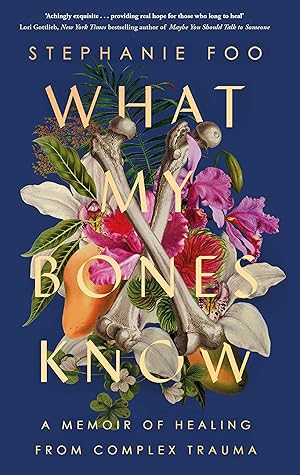More on this book
Community
Kindle Notes & Highlights
Read between
May 31 - June 5, 2025
The books taught me that when we live through traumatic experiences, our brains take in the things around us that are causing the greatest threat, and they encode these things deep into our subconscious as sources of danger.
At the Emory University School of Medicine in 2013, researchers conducted an experiment with male mice.1 They exposed the mice to the smell of cherry blossoms, then gave them an electric shock. The mice came to associate the smell of cherry blossoms with danger. Eventually, the mice were able to identify the smell at trace concentrations. The smell receptors in their brain enlarged—they changed to identify the scent. Researchers even identified changes in the mice’s sperm. Then, after the mice had offspring, the researchers exposed this next generation of mice to the cherry blossom scent.
...more
Yet another study by the Brain Research Institute of the University of Zurich in 2011 exposed baby mice to stressful situations by separating them from their mothers.2 The abandoned mice experienced anxiety and depression—which, right, seems obvious. What was shocking was how this separation affected future generations of mice. When the traumatized mice had babies, and then when their babies had babies, the scientists never separated them from their parents. They led perfectly content, nurtured little mouse lives. But for three subsequent generations, the anxiety and depression persisted.
I’d spent my life telling myself I didn’t need a mommy or a daddy. But now I was beginning to realize that this hunger isn’t childish—it is a universal, primal need. We all want to be taken care of, and that’s okay.
“But the amygdala is also involved in endocrine regulation and the regulation of stress responses, right?” Andreano explained to me. “So you’re not just going to be having this change in behavior or memory. You’re also going to have changes in the way that your body hormonally reacts to stress. And the stress hormone and sex hormone systems are very intimately connected. You do something to one, you’re going to influence the other. We perturb sex hormones, we perturb stress hormones, which then further perturbs sex hormones, and so on.”
The essence of what trauma does to a person is it makes them feel like they don’t deserve love,”
Road to Resilience, a show put out by the Mount Sinai Health System. This episode, “The Long Arm of Childhood Trauma,”
Negative emotions are of course terrifying in the context of our society’s obsession with happiness. But they’re especially bad for anyone struggling with modern psychiatry’s pathologizing perfectionism.
“Many people come to therapy seeking closure. Help me not to feel. What they eventually discover is that you can’t mute one emotion without muting the others. You want to mute the pain? You’ll also mute the joy.”


